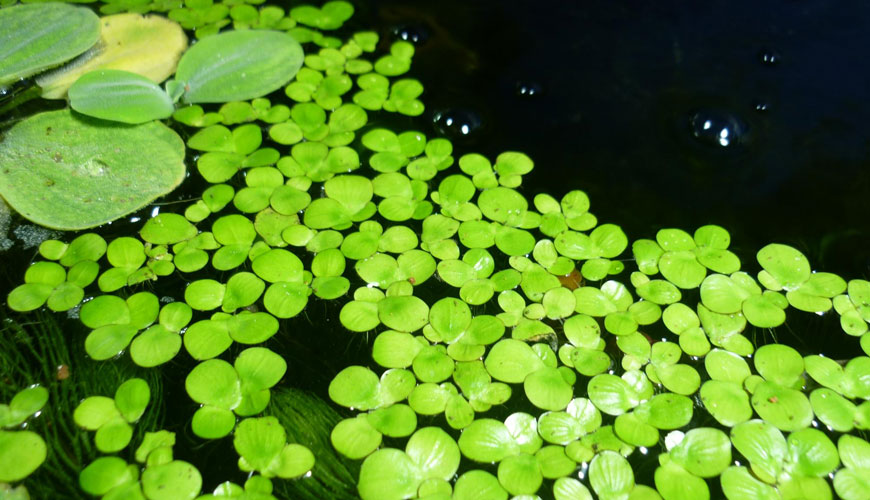

The ISO 20227 standard, developed by the International Organization for Standardization (ISO), specifies a method for determining the inhibition of the growth of the first leaves of Spirodela polyrhiza sprouting from spears caused by substances and preparations found in water or wastewater, including post-treatment urban wastewater and industrial effluents. The test also applies to pure chemicals and especially plant protection products and pesticides.

Duckweed are floating aquatic plants that are widely used in ecotoxicological research to evaluate the toxicity of wastewater, natural waters and chemicals. Duckweed is a fast growing plant; Since many of them have a cosmopolitan distribution, they are well suited to serve as primary producers for risk assessment of freshwater pollutants.
Unlike terrestrial plants, where bioassays can begin at the 'plant dormancy' (seed) stage, toxicity testing with duckweed requires the continued cultivation and maintenance of living stocks with inherent biological, technical and financial costs.
However, several duckweed species produce dormant vegetative buds (turions) that can be stored for a long time and sprout on demand during bioassay. One of the spear-producing duckweed species is Spirodela polyrhiza, which was eventually selected for a simple and convenient miniature bioassay independent of stock cultures preparation and live stock maintenance.
Spirodela polyrhiza was found to be as sensitive to toxic substances as in conventional bioassays with duckweed. The miniature bioassay procedure described in this document includes sprouting spears for 3 days, followed by a 3-day toxicity test on a multiwell plate, and determination of growth inhibition of the first leaves by image analysis.
Miniaturized bioanalysis with Spirodela polyrhiza is very simple and easy to perform:
Among the services provided by our organization within the framework of material testing services, there are also ISO 20227 standard tests. Do not hesitate to contact our laboratory EUROLAB for your testing and certification requests.
To get an appointment, to get more detailed information or to request an evaluation, you can ask us to fill in our form and reach you.